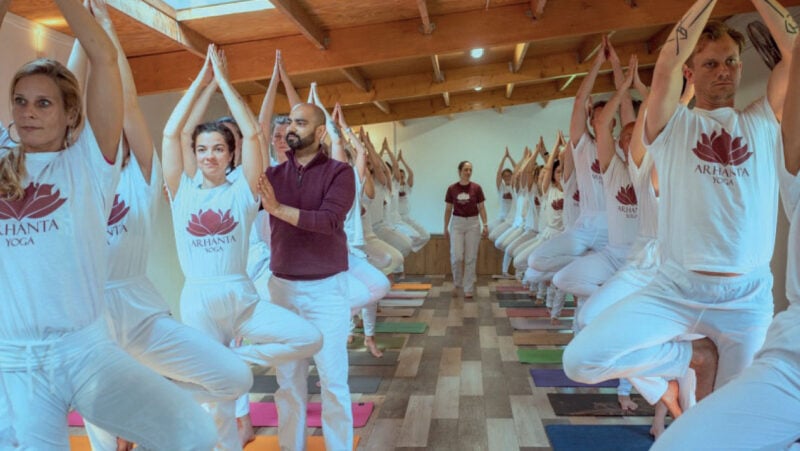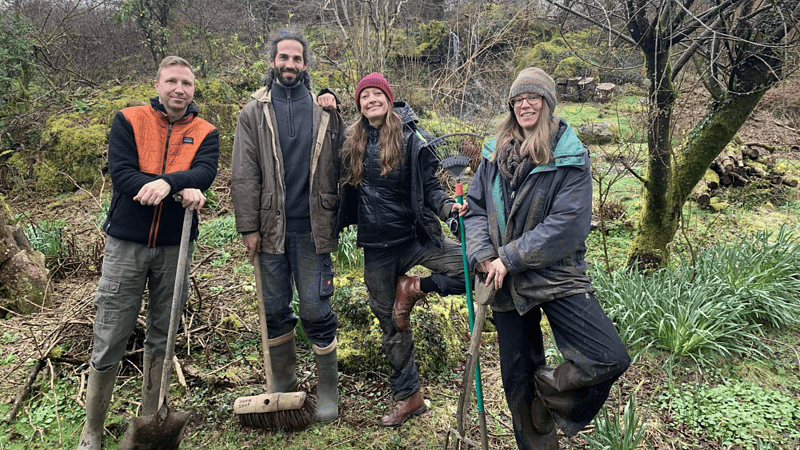
The Lone Wolf
Being asked to be alone may just be life’s way of encouraging you to work on yourself. By James Adams
The lone wolf stands alone. The lone wolf fights alone and the lone wolf grows alone.
The lone wolf does not depend on others for its survival – nor does it depend on comfort and luxuries for its happiness. The lone wolf is the strongest of them all.
I was forced to become a lone wolf after realising that my mask was starting to become uncomfortable. I stopped trying to fit in – pretending to be someone I was not. It was only attracting people and situations that did not have my best intentions at heart. I needed to pull away and rediscover myself.
If you suddenly find yourself alone as I did, don’t be afraid. Before reading on, let me give you a nice, big virtual hug and welcome you to the very beginning of your lone wolf journey.
Society teaches us that being a lone wolf is wrong. Apparently, wolves are supposed to stay with the pack. Wolves that break away from the pack are perceived as weaker, less influential, and unable to survive. Some Hollywood films even slip this notion onto our screens. The 'Wolfpack', a term coined by Alan in the Hangover franchise is used to solidify his shared group identity. Alan’s wellbeing is completely dependent on others recognising him as a valued member of the 'Wolfpack'.
In truth, I cannot be sure if there was a motive when adding this to the franchise, but nevertheless, millions of viewers have fallen in love with the Wolfpack and what it represents.
So then, do we need to be more like Alan and find our own pack to remain healthy, happy, and fulfilled? For the record, I adore Alan’s character. He brings a huge smile to my face every time I see his jovial, happy-go-lucky character on screen. But – and this is a regretful but – there is no room for a Wolfpack in my life and here’s why.
Many of us have been taught from a young age that loneliness is there because others are not filling the void. We may have been taught to seek out safety and security in others – even if it means surrendering our own authenticity. It starts from a young age. We are encouraged to find a pack and stick with it. We are encouraged to find friends. We are encouraged to spend time with those friends.
Yes, having friends is a very healthy and natural part of life. It’s how we interact with those friends that may not be healthy. It’s easy for boundaries to become blurred, and rarely does anyone point it out.
Unless your school grades are slacking, no one really questions the idea of spending all of your free time with friends.
Spending time alone, however, is a completely different story. A child asking to be alone is suddenly alarming to adults.
Why would a child want to stay indoors when all of their friends are outside? When we see children alone, we grow concerned that they will become lonely and isolated. We instinctively want to guide them back to their friends, without realising that they may be choosing solitude as a way to reflect and recharge.
Consequently, a child may learn that spending time alone is wrong and should be avoided at all costs. A child may forget who they are in the process. A child may start to hide behind a mask.
The same patterns continue into adolescence and even adulthood. We are led to believe that happiness comes from our friendships and other relationships. We seek happiness in others without learning to be happy in our own company.
Yes having loving and supportive people in our lives is important, but placing our sense of self entirely on relationships only leads to disappointment. Life is transient – people come and go. A friend may enlist in the army – a beloved auntie might emigrate to another country. Sometimes we have many people by our side, other times we may be catapulted to a place of complete isolation. Trying to control this is futile.
In truth, we cannot control any aspects of our life, right? We can set intentions and goals and work towards them, but we cannot force life to behave in the way that we want it to. If it’s going to rain, it will rain, whether we approve or not.
The unpredictability of life helps us to learn, grow and become the very best version of ourselves. When we accept this, the real magic can begin.
Some people are supposed to be in our lives, others are not. Some people are here to teach us lessons. Other times, the lessons come from the space where they used to stand. If life suddenly whisks you away from the pack, fear not, there may just be a reason for it.
Being asked to be alone may just be life’s way of encouraging you to work on yourself – shed old skin – and transform into an authentic version of yourself. It’s not easy to do this when influenced by others.
I would go as far as saying that your time as a lone wolf is the single most empowering experience of your life. When you have the freedom and space to rediscover your own light, the journey of authenticity can begin.
Many of us lose this divine connection with our true selves from a young age. Life may be giving you the opportunity to rekindle it. Grab it with both hands. Rediscover your light and shine for all to see.
So then – do you dare accept the challenge? Good luck fellow wolf. See you on the other side.







